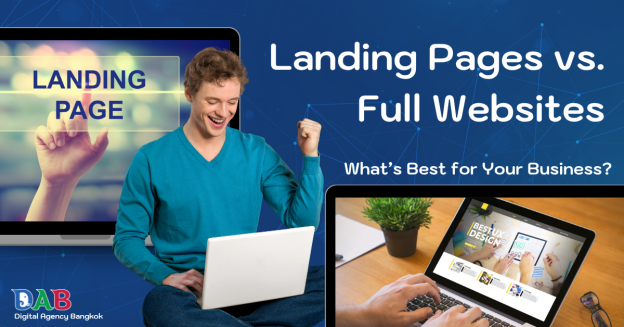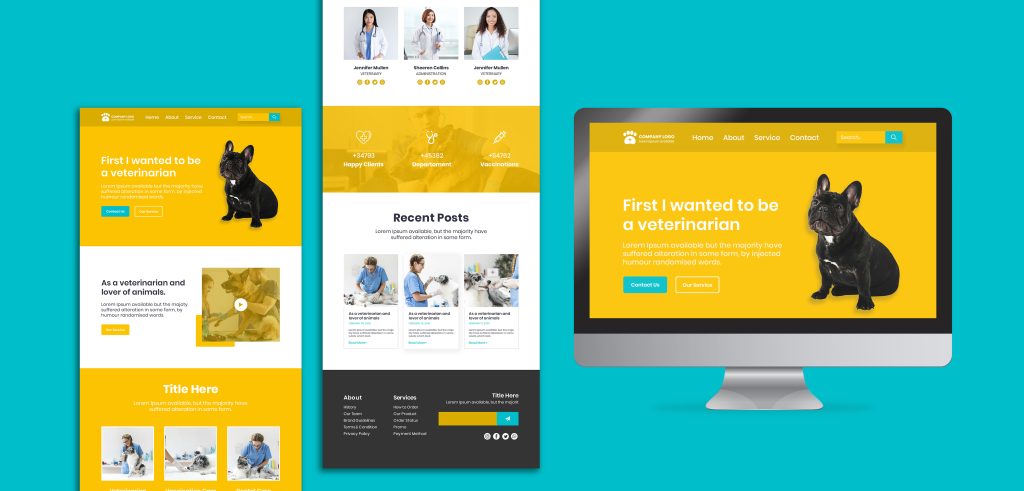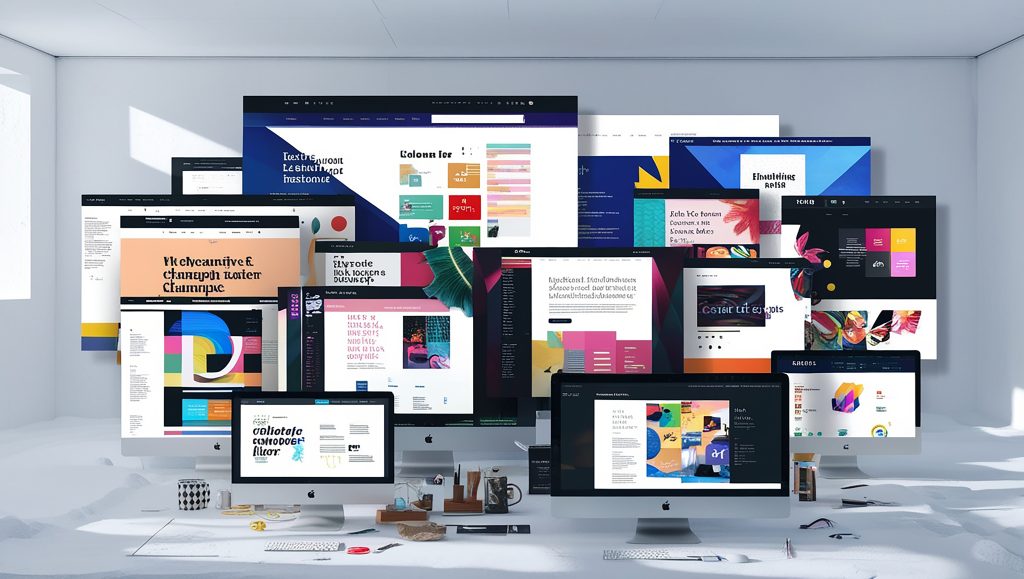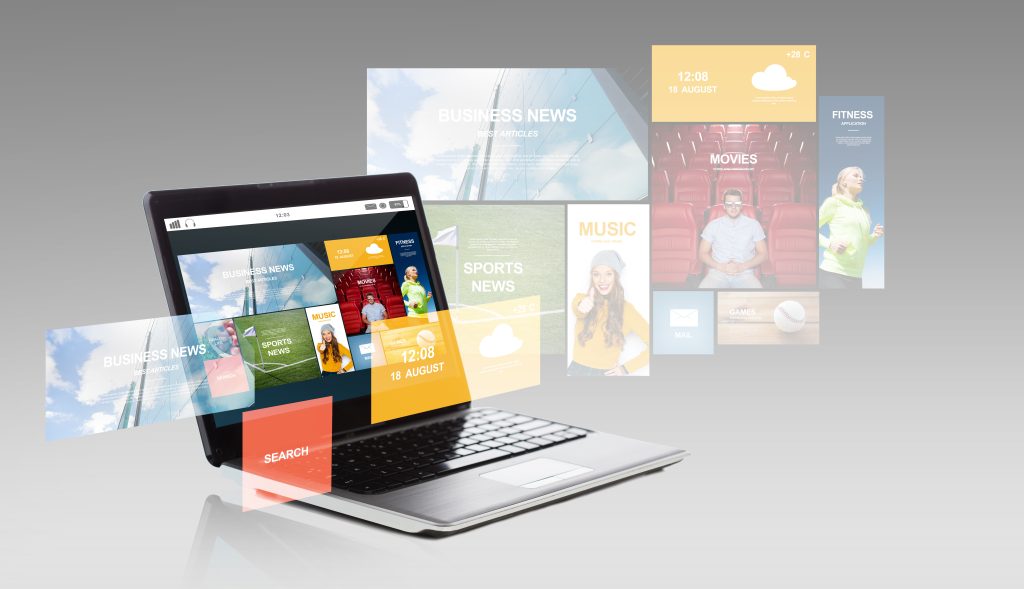Landing Pages vs. Full Websites — What’s Best for Your Business?

In today's digital world, having an online presence is crucial for businesses of all types. But a common question arises: Should you invest in a focused Landing Page or a comprehensive Full Website? This article will delve into the pros and cons of each option to help you decide what's best for your business.
What is a Landing Page?
A Landing Page is a single web page designed for a very specific purpose. It usually focuses on prompting visitors to take a particular action, such as signing up for a newsletter, downloading an e-book, or purchasing a specific product or service. Its primary goal is conversion.

Pros of Landing Pages:
- High Conversion Focus: By designing with a single call to action, landing pages typically achieve higher conversion rates. There are no distractions, so visitors know exactly what to do.
- Quick and Easy to Create: They require less time and resources to build and launch. You can often get a landing page up and running in a matter of hours or days.
- Ideal for A/B Testing: You can easily test different elements like headlines, images, CTA buttons, or copy to see what performs best and quickly optimize your campaigns.
- Cost-Effective: They generally have lower development and maintenance costs, making them suitable for smaller businesses or experimental campaigns.
Example of Landing Page Success:
Consider a business launching a new fitness application. Instead of building an entire website, they might create a single landing page that:
- Showcases beautiful app screenshots.
- Highlights 3-4 key, standout features.
- Features a large, prominent "Download Free on App Store / Google Play" button.
By focusing on this single goal, visitors are immediately directed to the desired action, significantly increasing the likelihood of app downloads.
Cons of Landing Pages:
- Limited Information: They offer less comprehensive information to users. If a customer needs in-depth details, a landing page might not suffice.
- Not Ideal for Long-Term Branding: They might not fully convey a comprehensive brand story or company ethos.
- Limited SEO Potential: Optimizing a single landing page for search engines can be challenging due to the lack of diverse content.
What is a Full Website?
A Full Website comprises multiple web pages, aiming to provide comprehensive information about a business, its products, services, company history, news, and contact details.

Pros of Full Websites:
- Comprehensive Information: A full website can provide all the information customers need about your business, from its history to complex product details.
- Builds Credibility: A well-designed and comprehensive website establishes credibility and professionalism for your business.
- Effective SEO Potential: With a variety of content pages and numerous relevant keywords, full websites can be optimized extensively for search engines, attracting a consistent flow of organic traffic.
- Robust Branding: It's an excellent platform to build and present your brand's story, vision, mission, and company culture.
Example of Full Website Success:
Consider a 5-star hotel. A full website is absolutely vital for them because customers need to:
- View multiple types of room photos.
- Check amenities like swimming pools, restaurants, and spas.
- Read reviews from other guests.
- Find maps and travel information.
- Book rooms and make payments online.
- Explore various special packages.
A comprehensive website ensures customers have all the necessary information before booking, building trust and confidence in the brand.
Cons of Full Websites:
- Time and Resource Intensive: Building and maintaining a full website requires significantly more time and budget for design, development, and ongoing management.
- Complexity in Management: It requires continuous content updates, security monitoring, and bug fixes.
- Potential for User Confusion: If the website structure is poor or there's too much information, users might get lost or struggle to find what they need easily.
Landing Page or Full Website: What's Best for Your Business?
The decision ultimately depends on your specific business goals and current situation:
Use a Landing Page if:
- You want to promote a specific new product or service.
- You're running a marketing campaign that requires high conversion rates and clear measurability.
- You have a limited budget and need to get online quickly.
- You want to test new ideas or offers before making a significant investment.
Use a Full Website if:
- You aim to build a strong, comprehensive brand presence for the long term.
- You have a large amount of information you need to present to customers in detail.
- You want to attract customers through organic search (SEO) and generate consistent traffic.
- You have a diverse range of products or services to showcase and explain.
Sometimes, a combination of both might be the best answer!
Many businesses use a Full Website as their central hub for information and brand storytelling, while simultaneously deploying Landing Pages for specific marketing campaigns, such as new product launches, special promotions, or lead generation. This approach allows you to leverage the best of both worlds: your main website builds credibility and attracts general traffic, while dedicated landing pages help you achieve specific marketing goals efficiently.

Conclusion
Whether you choose a Landing Page or a Full Website, the most crucial step is to clearly understand your business objectives. Selecting the right tool for your purpose will undoubtedly help you achieve your goals and build lasting success in the online world.
At Digital Agency Bangkok, we help businesses choose and create the right web presence based on their goals, budget, and target audience. Need help deciding? Let’s talk.


